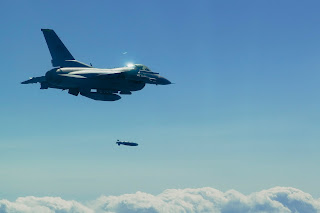 Officials in the Harper government say MP Bob Dechert should be taken at his word when he claims that his exchanges with a journalist for Xinhua did not compromise security
Officials in the Harper government say MP Bob Dechert should be taken at his word when he claims that his exchanges with a journalist for Xinhua did not compromise security The scandal involving MP Bob Dechert and Shi Rong (施蓉), a female reporter for Xinhua news agency in Toronto, has gained momentum all week, and it seems that my
op-ed on the subject, which appeared in the
Ottawa Citizen on Tuesday, had something to do with that. In the past few days, I have received several requests for comment and interviews, including a half-hour chat with CJAD radio on Thursday. This was to be followed by my appearance, via telephone, on a segment of CBC television’s
Power and Politics with Evan Solomon, which had me up at 5:30am. However, live television being what it is, something went wrong and I didn’t make it on the show. This said, here’s what I had planned to discuss.
In my view, what needs to be emphasized is the fact that this scandal really must be investigated, if only to clear Shi Rong’s name. If this situation is allowed to fester — and ignoring the problem, as the government seems to be doing, would accomplish just that — Shi could find it difficult to continue working in Canada. Canada is not authoritarian China, which means that investigations serve as means to both incriminate
and exonerate individuals.
As for Mr. Dechert, who is also a parliamentary secretary to Minister of Foreign Affairs John Baird, regardless of whether Shi was a spy or not (and he could not have known), he ignored three red flags that nobody in his position can afford to ignore:
China, Xinhua, and a young woman. China is too aggressive on espionage for those risks to be ignored.
The fact that Mr. Dechert is a member of the Canada-China Legislative Association, which seeks to foster closer ties between the two countries, makes his unprofessional dealings with Shi very problematic. (Mr. Dechert accompanied PM Harper on a trip to China in 2009.) Shi could very well be innocent, and this can only be determined via investigation. Mr. Dechert, however, isn’t innocent, period. He is guilty of seriously bad judgment, and in my opinion he has done irreparable damage to his reputation as someone who can be trusted with the kind of access he likely gets in his position.
What also needs to be emphasized is that as the Harper government seeks closer ties with China, government officials, members of the business community, and even reporters, will need to be educated about China and the risks that arise from such engagement. Canada has several things wanted by China (technology, natural resources, competitive edge, window into the US/NATO, etc), and pretending that we’re the nice guys won’t change that fact.
This scandal should prompt the government into action: First, it needs to address the issue at hand, and second, it needs to educate its officials and the community. In the end, if Mr. Dechert really didn’t know how risky his behavior was, then there’s a problem with the whole government, and this needs to be remedied. It’s an uphill battle for agencies like CSIS, as the political directive is to play down the threat amid efforts to court Beijing. The KMT government in Taiwan is doing the exact same thing at the moment, looking the other way whenever China’s behavior is inconvenient for rapprochement.
My views on this are bipartisan and do not specifically target the Conservative government, as the Liberals were equally “soft” on China, starting with the killing, and then watering down, of the “Sidewinder” report in 1997, which already pointed to the risks of dealing with China. Officials in foreign affairs and at CSIS resigned over the matter.
The decision to play down the Dechert scandal is political, and thus what we are seeing is the politicization of intelligence, where policy drives intelligence (in other words, PMO telling CSIS and other agencies:
Don’t look into this, as this will complicate our efforts to create rapprochement with Beijing). In a perfect world, intelligence would be provided regardless of policy and as a means to inform policy decisions. My feeling — and I could be wrong, as there’s no knowing for the moment — is that the Harper government told CSIS not to look into the matter. This finds precedent in CSIS Director Richard Fadden coming under severe fire for alleging that foreign (read Chinese) intelligence had penetrated our government.
Another parliamentary secretary to Baird who appeared on the CBC show and whose name I forget said he, Baird and Harper were taking Mr. Dechert at his word and believed him when he said he hadn’t compromised security. Asked repeatedly if an investigation had been launched, the aide, who said he was a “close friend” of Dechert, kept repeating the PMO took Dechert at his word. Now here’s a government that is taking those matters seriously!
As for Shi Rong, the latest is that she has left Canada on a “scheduled” vacation. It isn’t known whether she will be back.
 Beijing should strike the Philippines and Vietnam, the two ‘noisiest troublemakers,’ to strike fear into other claimants, a Chinese academic argues in the influential ‘Huanqiu Shibao’
Beijing should strike the Philippines and Vietnam, the two ‘noisiest troublemakers,’ to strike fear into other claimants, a Chinese academic argues in the influential ‘Huanqiu Shibao’






















